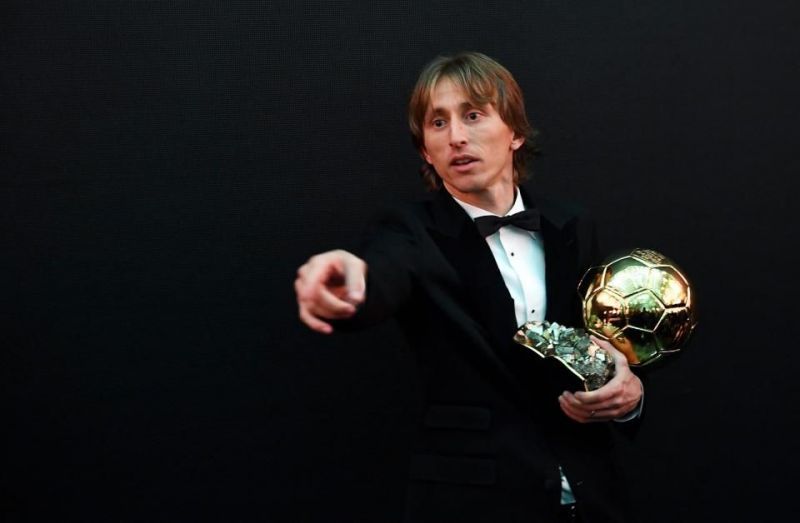
Ballon d'Or: What should count more - individual performances or trophies?
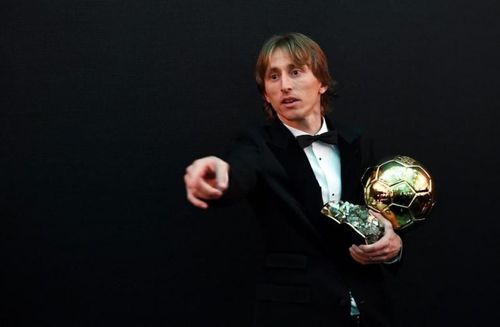
The history books had a new entry to be noted in themselves as Luka Modric emerged out of the smoke-filled tunnel and onto the balcony to receive his first-ever Ballon d'Or. After what was a trophy-laden 2018 for the Croatian in the context of personal achievements, Modric lifted the most coveted prize to break the duopoly of Cristiano Ronaldo and Lionel Messi that had ensued 11 years ago.
As he took to the podium to wield the sceptre as the world's best player, surely every one of us must have taken a trip down the memory lane to feel sorry for those who missed the award by a whisker in the past decade. Wesley Sneijder, Andres Iniesta and Frank Ribery – these legends were denied the pleasure they so richly deserved.
Modric lifting the accolade has divided opinions throughout the globe. While a majority have blissed out over the diminutive midfielder winning it, a considerable section of football fans, those of Cristiano Ronaldo in particular, have gone berserk over the results.
However, it isn't the who-deserved-to-win-it debate we need to indulge in. The context in which the Ballon d'Or is awarded also calls for attention in the light of Modric clinching the trophy.
The Ballon d'Or criteria
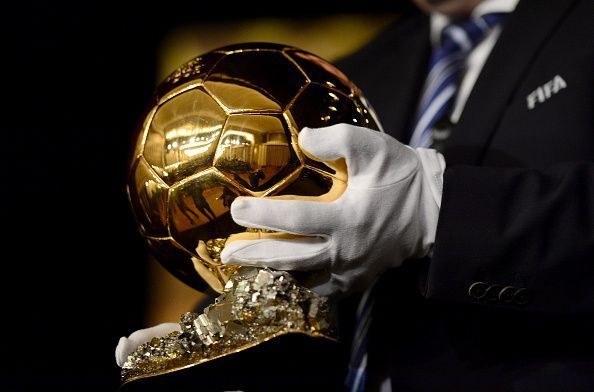
Let's have a recap of the selection process for the Ballon d'Or. Initially, France Football draws up a 30-man shortlist, followed by the assembly of a jury that consists of renowned journalists. Each member of this panel ranks the players on the following criteria:
1. Individual and collective performances (winners) during the year
2. Player class (talent and fair play)
3. Overall judgment of the player's career
While the latter two touchstones more or less receive the justice they deserve, the first one calls for a proper scrutiny.
Since the Ballon d'Or is an individual award, a player's individual performances deserve to be emphasised more. That does not go to say that his contributions on a collective level should be glossed over entirely. After all, collective laurels, in a way or two, encompass the effect of his contributions to the team and it would be a sin to disregard them.
To put it in a nutshell, amalgamation of both collective and individual exploits with a moderate inclination towards the latter should be the ideal criteria for winning the Ballon d'Or.
Delving into history...
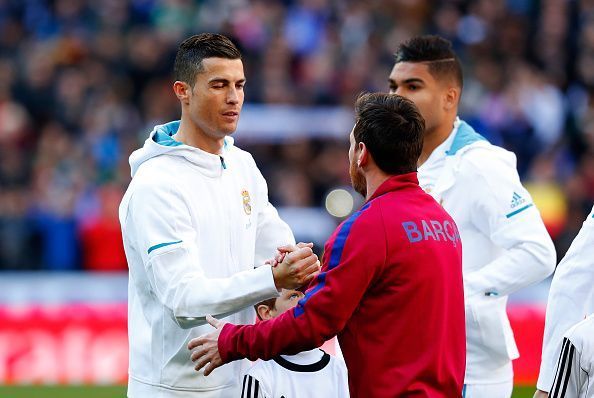
Ideally, individual performances deserve to have the maximum influence over the decision to award the Ballon d'Or. However, Lionel Messi and Cristiano Ronaldo winning the Ballon d'Or in 2010 and 2013 respectively were debatable issues in the context of certain other factors.
The Barcelona hitman plundered 47 goals in 53 games in the season 2009-10, inspiring his club to a league title in the process.
However, Sneijder was more of a deserving candidate for the Ballon d'Or, considering his emphatic performances on the road to Inter Milan's treble and his impressive World Cup exploits. He may not have had the stats to encompass his importance, but that's understandable knowing that he played as a midfielder in contrast to Messi.
Cristiano Ronaldo notched a tally of 55 goals in 55 games in the season 2012-2013 and history repeated itself yet again.
The then Real Madrid ace won no major title during that season, finishing only with a Spanish Super Cup winners' medal. On the contrary, Ribery was an instrumental contributor in Bayern Munich's treble that season albeit his statistics were nowhere near to that of Cristiano Ronaldo.
The aforementioned examples also compel us to the debate about how non-attackers are always left in the shadow of the goalscorers while being considered for the award. In their case, since they don't have a plethora of goal tallies to showcase, collective trophies actually tend to make a huge statement on their behalf and are sort of an evidence of their exemplary exploits.
The Champions League influence
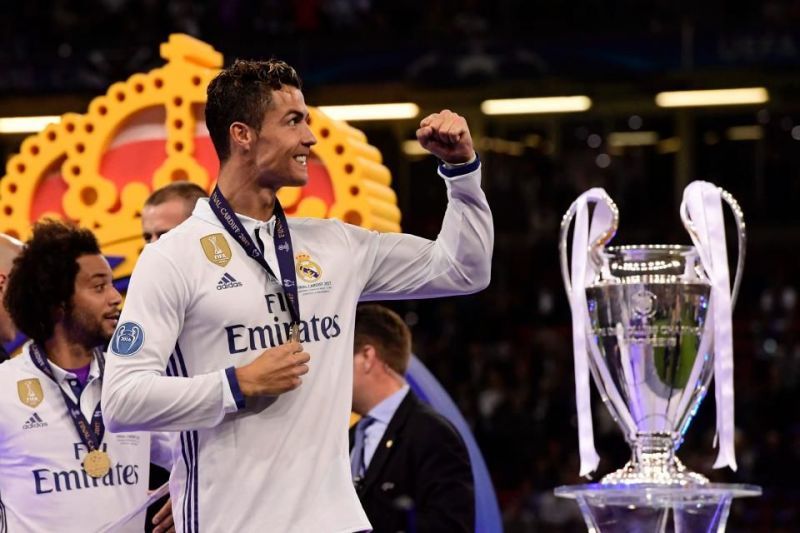
The final verdict in recent years has been heavily influenced by many other factors, especially the Champions League. If you have cared to notice, the Ballon d'Or has been awarded to the player who has won the Champions League title since 2013.
The bias towards the European tournament has also sort of deprived the importance of national leagues in recent times.
On the other hand side, CR7 won the trophy even after having six lackadaisical months following his Champions League victory in 2017.
Modric's claim to the land of paradise
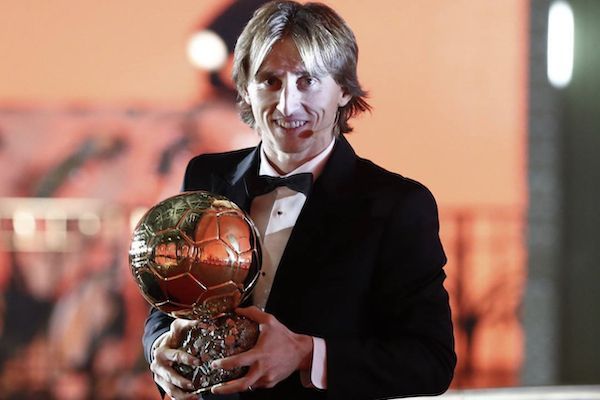
Modric reached the promised land, breaking the shackles of the fearsome duopoly and clinching the Ballon d'Or. And he totally deserved to bask in the glory millions have only dreamed about.
Let's not forget peeps, the midfielder had already been decorated with the FIFA Best Player of the Year, the UEFA Best Player of the Year and the World Cup Golden Ball before resting his case for the greatest individual accolade.
Add to that his performances on a collective level - winning the Champions League and leading Croatia to the finals - and the magician deserves to lift the Ballon d'Or more than anybody else.
The Ballon d'Or has often been criticised for being inclined towards attackers, but in being handed to Modric, it has certainly regained a chunk of its lost credibility. The Croatian player's triumph now stands as a gleaming inspiration for all the non-attackers to dream of laying their hands on the prize one day.